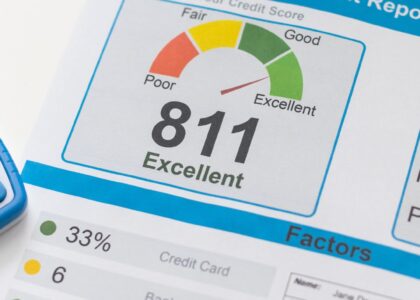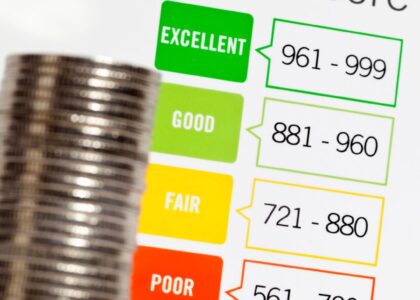There is nothing that a credit repair agency can lawfully do for you that you couldn’t do yourself for little to no money, not even the removal of inaccurate information. Additionally, employing such a business may be expensive, costing anything between hundreds and thousands of dollars.
While it may be tempting to let a credit repair company handle the job of repairing your credit, it’s crucial to understand what they can and cannot do and to take action on your own before you think about paying their fees.
The Credit Repair Organizations Act: What Is It?
Companies that repair credit challenge inaccurate information on your credit reports. However, some of these businesses have a history of exaggerating what they can provide customers in an effort to increase sales.
A federal statute known as the Credit Repair Organizations Act (CROA) went into force on April 1, 1997, in response to several individuals who had fallen victim to credit repair scams. The law effectively guarantees that businesses offering credit repair services:
- Are forbidden from accepting payments from customers before providing the promised services in full.
- Are expected to give customers a written contract outlining all the services to be rendered as well as the payment terms and conditions. Consumers have three days to cancel a contract under the legislation.
- Are prohibited from requesting or recommending that you lie to credit reporting agencies about your credit accounts or change your identify to affect your credit history.
- Cannot deliberately make untrue or misleading promises about the services they are able to provide.
- cannot make you sign anything that implies you are giving up your CROA rights. Any waiver you sign is void and unenforceable.
The CROA improves the credit repair procedure’s openness and due diligence, decreasing the likelihood that customers would be taken advantage of. Regulators have still continued to uncover misconduct by credit repair businesses.
Over the years, the Consumer Financial Protection Bureau has filed lawsuits against a number of credit repair businesses for collecting illegal advance payments, deceiving clients about their capacity to restore credit, and other violations.
How to “Fix” Your Credit by Yourself
There is no easy way to improve your credit. Your credit report will contain unfavorable but factual information (including missing payments, charge-offs, or collection accounts) for seven to ten years. However, there are actions you can do to begin establishing a more favorable credit history and gradually increase your credit ratings.
Check Your Credit Report
Check your credit report and discover more about how to interpret your Experian credit report to have a better knowledge of your credit situation and what potential lenders can see. Ordering your free credit score from Experian is another smart move. You’ll get a list of the risk variables that are having the biggest influence on your scores using it, so you can make adjustments to improve them.
You can submit a dispute with the credit reporting organization whose report you believe contains inaccurate information if you discover it. Inquire directly with the lender who is reporting the inaccurate information and request that they update their records.
Improve Your Payment History
The key factor in FICO® scoring models is your payment history. Bankruptcies and collections can significantly harm your credit, and late and missing payments can lower your credit ratings. For seven to ten years, this bad information will stay on your credit record and affect your credit ratings.
Your debt balance and the time of your missed payments are frequently taken into account when calculating your ratings. Usually, your credit score will decline as your debt grows and as recent missed payments increase. Your credit ratings will nearly always rise if you pay off past-due bills and keep up your timely payments.
Understanding Your Credit Utilization Ratio
Your credit usage ratio, or rate—the difference between the amount you owe and the amount of credit you have available—is typically taken into account by credit scoring models.
In general, it is the total of all of your revolving debt (such as the balances on your credit cards) divided by the entire amount of credit you have access to (or the sum of all of your credit limits), multiplied by 100 to produce a percentage. Your usage ratio, for instance, would be 10% if you had a $6,000 credit card balance and $60,000 in total credit available across all of your credit card accounts.
Think About How Many Credit Cards You Have
scoring models Carefully consider your debt and the number of accounts you have. It may be advantageous to pay off some of the accounts, if you are able to, if you have debt on a number of different accounts.
Many people who have previously racked up debt want to pay it off on their credit cards, but even after doing so, think about leaving the account open. Keeping paid off accounts open might help your credit because they are older accounts in excellent (paid-off) standing. Closing them, however, can lower your scores by reducing your available credit and raising your credit usage ratio. Again, debt consolidation is something you might think about.
Consider Your Credit History
Longer credit histories are rewarded by credit scoring models, such as those developed by FICO®, which frequently take into account the age of your oldest account and the average age of all of your accounts. Consider your credit history before terminating a credit card account. Even if you’ve paid off your credit card and have no intention of using it again, keeping it open can still be beneficial.
If you are interested in keeping your credit score in good standing or condition, Credit Repair Bay Area is here to help. Our dedication in helping you is what makes us stand out from the rest. Feel free to contact us to learn more about how we can help.





